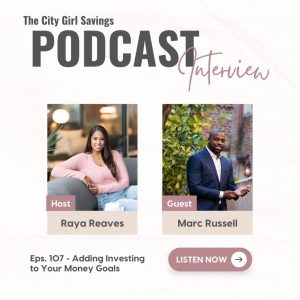In the last Finance 101 topic, we covered the most common types of investments: Stocks, bonds and mutual funds. Now, the CGS Team is going to provide you with an overview of the investing process and common investment strategies that may work for you.
We understand that learning about investing can be an overwhelming amount of information, so we will make sure to provide with the most relevant details you need to know.
What is Investing?
According to the Merriam-Webster dictionary, to invest means “to commit money in order to earn a financial return”. The concept is quite simple, however earning a financial return does not always happen when one invests.
In addition to money, investing can include time, resources, knowledge, etc. but for the purpose of this article we will refer to investing with money. Investing should mean making your money work for you to earn an additional return.
This can be through stocks, bonds, and mutual funds, as well as real estate or starting your own business. Investing your money in these things can provide a great financial return that is not as easily accessible through working your normal 9-5 job.
It is true that investing can be a risk, but it can also be rewarding. Putting your money in something that is going to work specifically for you is the main point of investing.
Some people claim that investing is the same as gambling your money at a casino. This is not the case, primarily because investing requires you to complete thorough research and analysis before committing your money.
Gambling requires you to put money on an unknown outcome for a potential return. Gambling is not the same as investing, if you are investing the right way.
Why Should you Invest?
In addition to gaining more financial security, personal freedom and the ability to purchase all of the needs and wants of today’s society, investing is becoming a requirement to ensure that you live comfortably after retirement. While your retirement fund is usually managed by a company hired by your employer, it is most certainly a form of investing.
Whether you are investing for retirement, to achieve financial success or build a small business empire, understanding your main financial objective is key to your investment success.
After you have done your research on your next investment, you must assess your current financial situation. Will you be investing a large lump sum at once? Will you be investing a little at a time for a long period of time? Do you know your limits?
All of these factors play a part in the type of investment you fund, as well as the type of return you want.
If you are looking to invest for retirement, then you will most likely be investing smaller amount over a long period of time. In this case, you would want to pick investments that have large growth capabilities over time.
If you are looking to invest in something short term (6-12 months) that will provide a return, then you may want to invest in a Certificate of Deposit or a specific company’s stock. A Certificate of Deposit (CD) is most suitable for low-risk investors. It will guarantee a certain amount of profit within a specific time frame.
If you are hoping to earn a greater return and are willing to risk more, then a stock may be best. After researching a specific market (oil, luxury minerals, etc.) to determine the predicted state of that market in the near future, find a company that produces positive financials and is in tune with the market you selected.
If you currently have a large amount of money and prefer to invest in assets, then purchasing real estate is a great option. Putting a large sum as a down payment and leasing your property to cover your monthly mortgage and interest payments (plus extra if the market allows) can guarantee returns in the form of cash and property.
There are quite a few ways to invest, so determining your long-term goal will help tremendously in finding the best investment for you.
Common Investment Strategies
When looking to invest long term in stocks, bonds and other investment types, establishing a portfolio to help reach your objectives is highly recommended. “A portfolio is a combination of different investment assets mixed and matched for the purpose of achieving an investor’s goal(s)” (Investopdia).
When establishing your portfolio, the most common investment strategies to consider are:
1. Asset Allocation
2. Diversification
3. Dollar Cost Averaging
Allocation of investments or assets refers to the types of investment categories you own and the percentage of each found in your portfolio. For example, if you are conservatively investing, your portfolio may consist of 75% of Fixed Income Securities, 15% equities, 5% personal affects, and 5% cash.
Diversification is the process of managing risk in your portfolio by mixing a wide variety of investments to minimize loss. This would mean your portfolio would contain stocks, bonds or mutual funds that rise when the market is rising, as well as stocks, bonds, or mutual funds that rise when the market is falling.
Lastly, Dollar Cost Averaging is the strategy of purchasing fixed investment amounts at predetermined times, regardless of the price of investment. According to Wells Fargo, this strategy will minimize risk by reducing the difference between the initial investment and the current market value over a long enough time.
Before you start investing, you need a brokerage account. Read Shopping for a Brokerage Account to learn what to look for with your investment account.
The amount of investment information available to you is endless. If you are considering investing in anything, ensure that thorough research is completed. You have the ability to obtain more in life, if the right investments for you are taken.
Related: 6 Reasons to Start Investing Next Year
Are you considering investing in something or starting your own business? Do you have any advice from previous investments?
Sharing your information with the community is valuable and can help other members when deciding on investment options. Leave your comments below to share your thoughts, opinions, questions and experiences!





